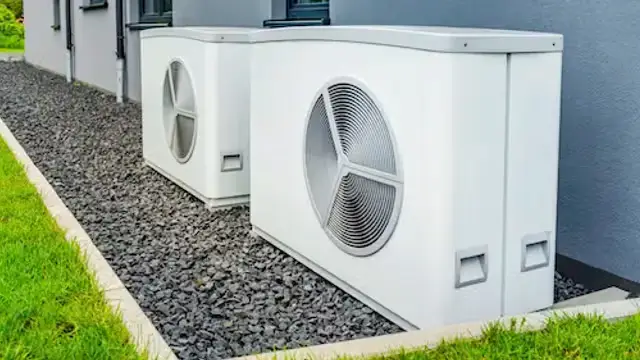Investing in a heat pump is a significant decision that can impact your home’s comfort and energy efficiency. With various types and models available, choosing the right heat pump requires careful consideration of factors like efficiency, climate, and your specific heating and cooling needs. In this comprehensive buying guide, we’ll walk you through the essential elements to ensure you make an informed decision for a heat pump that aligns perfectly with your home.
Understanding Heat Pumps
What is a Heat Pump?
A heat pump is a versatile HVAC system that can both heat and cool your home. It operates by transferring heat rather than generating it, making it an energy-efficient option for year-round comfort. They are relatively easy to install and can potentially save you money compared to other HVAC systems, depending on where you live and other factors. Any time you need to replace or update part of your HVAC system, heat pumps are worth considering.
Types of Heat Pumps
Air-Source Heat Pumps
- Operation: Extracting heat from the outdoor air during the heating season and expelling it outside during the cooling season, air-source heat pumps operate by transferring heat.
- Suitability: Ideal for moderate climates, air-source heat pumps are proficient in regions with mild winters and warm summers. However, they may experience reduced efficiency in extremely cold temperatures.
- Easy Install: These are one of the easiest and cheapest heat pumps to install and take up little space.
Ground-Source (Geothermal) Heat Pumps
- Operation: Utilizing the consistent temperature of the earth for heat exchange, geothermal heat pumps are heat-exchanging pipes that are buried underground.
- Efficiency: Geothermal systems are more reliable and quieter than an air source system. They excel in extreme climates, delivering higher efficiency even during the coldest winter months due to the stable temperature of the earth.
- Installation: The specialized installation process involves burying ground loops, contributing to a higher upfront cost compared to air-source counterparts and can make repairs difficult. This is more impractical for small lots or those with certain types of landscapes and soils.
Water-Source Heat Pumps
- Operation: These heat pumps transfer heat to or from a water source, such as a well, pond, or lake, through a water loop system. They utilize the consistent temperature of the water source for efficient heat exchange.
- Efficiency: Water-source heat pumps can offer high efficiency and a more constant input temperature, similar to geothermal systems, benefiting from the stable temperature of water.
- Installation: While installation complexities depend on the chosen water source, these systems may provide an alternative for efficient, inexpensive and eco-friendly heating and cooling.
Choosing the Right System
Climate Considerations
Tailor your choice to the local climate; air-source heat pumps suit moderate climates, while geothermal and water-source systems excel in more extreme conditions.
Budgetary Factors
Evaluate upfront costs, long-term savings, and installation complexities when selecting the most suitable heat pump for your home.

